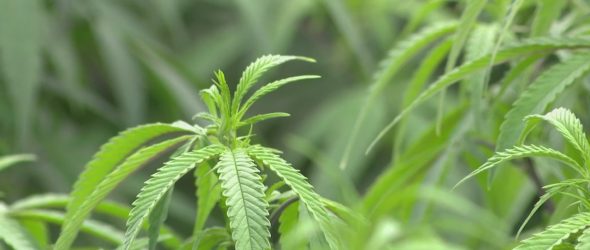Marijuana and medication. A new study raises the red flag about cannabinoids interacting with prescription medications.
With the renewed legalization of recreational pot and the growing popularity of medical marijuana, Penn State researchers set out to see how that would impact drugs Americans were already taking.
They found 57 problems.
Kent Vrana, PhD, is a professor of pharmacology at Penn State.
“The remarkable finding was that we identified 57 drugs that have a narrow therapeutic index,” he said.
That means the range of efficacy to toxicity is very narrow. And the presence of cannabinoids, chemicals found in cannabis, could tip the scale to the dark side.
One of the biggest concerns is patients taking blood thinners like Coumadin.
“It turns out if someone were on that medication and we’re suddenly to add a high dose of cannabinoid, no matter what the source, they are at risk for interfering with the metabolism of that Coumadin and have an adverse reaction,” Vrana said.
More than 8 million Americans are currently taking blood thinners. And many are older, seeking medical marijuana for pain relief or CBD oil without knowing the combination could be disastrous.
“When the states legalize recreational or medical marijuana, what’s not taken into account is the fact that it may interfere with prescription drugs,” Vrana said. “There are a number of drugs that are cardiac related, some antibiotics and interestingly enough an anesthetic called propofol.”
Anesthesiologist noticed the interaction in surgical patients.
“Folks that are heavy users of recreational marijuana for instance take more propofol to sedate for surgery,” Vrana said.
The list is lengthy, including blood pressure, depression, birth control, thyroid and cancer medications.
Offering guidance, Penn State researchers said patients taking dozens of drugs should be closely monitored if they use cannibinoids. The biggest problem is doctors don’t know when patients make medication decisions.
“People don’t disclose whether it is because they’re using an illicit recreational marijuana or CBD oil that they could get over-the-counter, or medical marijuana they don’t think of that as a medication necessarily,” Vrana said. “I don’t want to paint necessarily that it is a bad thing. It’s just something that we need to monitor and be careful about. … They are very bio active and powerful.”
The very biological properties that give medical marijuana power, also diminish or enhance the effects of other drugs, much like a drug to drug interaction. But even CBD can cause an issue.
“We have shown that all CBD oils are not created equal. And so the FDA for instance, just had to recall a CBD oil preparation that had too much lead in it,” Vrana said. “I would caution people against using over-the-counter CBD oils for instance. And if they are using, whether it’s CBD oil or recreational marijuana, just disclose that to your doctor so they can plan how they are going to treat you with other medications.”
The researchers say they plan to routinely update and add to the drug interaction list as newer medcations are approved.


